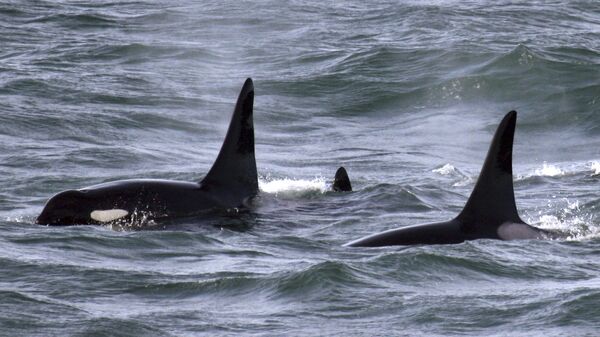Washington state politicians, including the governor and attorney general, as well as several state agencies, are attempting to put a stop to a massive weapons testing regime the US Navy hopes to begin.
The Navy is preparing for a seven-year-long weapons testing program for the waters off the Pacific Northwest. The program would begin in November and would include testing torpedoes, firing projectiles from a railgun at seven times the speed of sound, testing of underwater sonar, and explosions of bombs weighing up to 1,000 pounds.
Washington Governor Jay Inslee wrote in a letter to the Navy earlier this month that the service needs a “more robust avoidance and mitigation strategy” in order to protect the wide variety of marine wildlife that live in the Pacific waters stretching from northern California to southern Alaska,” the Associated Press reported on Thursday.
Those animals include seals, humpback whales and gray whales, and southern resident killer whales, which are the only orcas listed under the US Endangered Species Act by the National Marine Fisheries Service, National Oceanic and Atmospheric Administration (NOAA).
According to the Navy, the animals could be impacted between two and 51 times per year, and while some of the encounters could be deadly, many are likely to cause life-altering changes in their behavior, such as scaring them away from hunting and breeding grounds and permanently damaging their hearing, the Seattle Times noted last November.
NOAA received a joint letter earlier this month from the Washington Department of Fish and Wildlife, the Department of Natural Resources, The Puget Sound Partnership, State Office of Recreation and Conservation, Governor's Office of Salmon Recovery, and Commissioner of Public Lands Hilary Franz. The letter blasted NOAA for “gross neglect” of its management duties, the Seattle Times reported on Thursday.
However, NOAA has judged the Navy’s testing regimen to have a “negligible” effect on wildlife and is drafting a final rule for implementing the program.
Julianne Stanford, environmental public affairs specialist for the Navy Region Northwest, told the Seattle Times the Navy was having “active discussions” with regulators in an attempt to further reduce the impact of testing on wildlife, especially orcas and other cetaceans who are very sensitive to sound.
"The Navy is keenly aware of the challenges faced by the southern resident killer whales resulting from a multitude of human activities, and focuses considerable effort on avoiding or minimizing potential effects on the species in planning for its at-sea activities throughout the region," Stanford said.
The southern resident killer whale population, already at its smallest size in 40 years at just 72 animals, is already at risk from a number of factors, including pollution.
"The thing that is just crazy is NOAA has designated these one of the most critically endangered animals, and for them to say these activities have negligible impact, something is not right and the public needs to know that,” Deborah Giles, science director and research director for the nonprofit Wild Orca, told the Times. "The potential for harm is too great to wager on such a small population of animals.”




